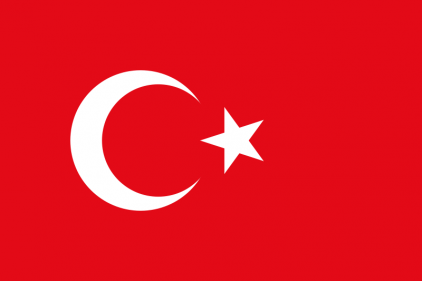Turkey must do better for membership, Brussels says
 Brussels - Turkey has proven itself to be a reliable international partner and a key energy transit route, but it must work harder on political and human-rights reforms if it wants to join the European Union, the EU's executive said Wednesday.
Brussels - Turkey has proven itself to be a reliable international partner and a key energy transit route, but it must work harder on political and human-rights reforms if it wants to join the European Union, the EU's executive said Wednesday.
"Turkey's geo-strategic position gives the country a vital role in the EU's energy security, particularly diversification of energy sources. Closer energy cooperation between the EU (and) Turkey ... is essential," the European Commission said in its annual report on would-be EU member states.
Nevertheless, "a new impetus now needs to be given to reform, in order to strengthen democracy and human rights, modernize and develop the country and bring it closer to the EU," the paper said.
Turkey has been a candidate for EU membership since 1999 and opened formal talks on accession in 2005, but officials in Brussels say that its progress has been limited, especially under the impact of the summer's power struggle between the ruling AKP party and the country's secularist elite.
"The year 2008 was marked by strong political tensions in domestic politics. Constitutional court cases highlight the need for an urgent revision of rules governing political parties and also for wider constitutional reform," EU Enlargement Commissioner Olli Rehn said.
"The country has every chance to make 2009 an important year in its accession progress by accelerating the momentum of legal and democratic reforms," he said.
Nevertheless, he refused to set a date for the completion of Turkey's accession talks, saying that this would depend on the pace of reform in the country.
"The key to make progress is not for politicians to ask for a date. The key is indeed to sit down and agree on reforms in the government, in the parliament, and encourage administration to implement these reforms seriously," he stressed.
Turkey's perceived weakness in fighting organized crime is also a "serious concern," the commission report said.
And its policy of vetoing the entry of EU member Cyprus into international organizations, and its refusal to let NATO, of which it is a member, cooperate fully with the EU because of its dispute with Cyprus, "created problems for EU-NATO co-operation."
"We expect Turkey will contribute to a favourable climate for a comprehensive settlement on the reunification of Cyprus. 2009 should be a decisive year," Rehn said.
However, the commission also praised Turkey's cooperation on foreign-policy issues such as Iraq, Iran and the summer's Russian- Georgian war.
"Turkey has enhanced its positive role of regional stabilization, in particular as regards the Caucasus and the Middle East ... Turkey is contributing substantially to (EU security missions) and seeking greater involvement in (such) activities," the report said.
And it acknowledged Turkey's importance as a transit country for natural gas, stressing that "the Turkish authorities have repeatedly confirmed their commitment to the realization of the (Nabucco) project" for bringing Azeri gas to the EU, bypassing Russia.
EU Energy Commissioner Andris Piebalgs is set to travel to Ankara later Wednesday to discuss the Nabucco project amidst concerns over Turkey's policy of transit fees. (dpa)